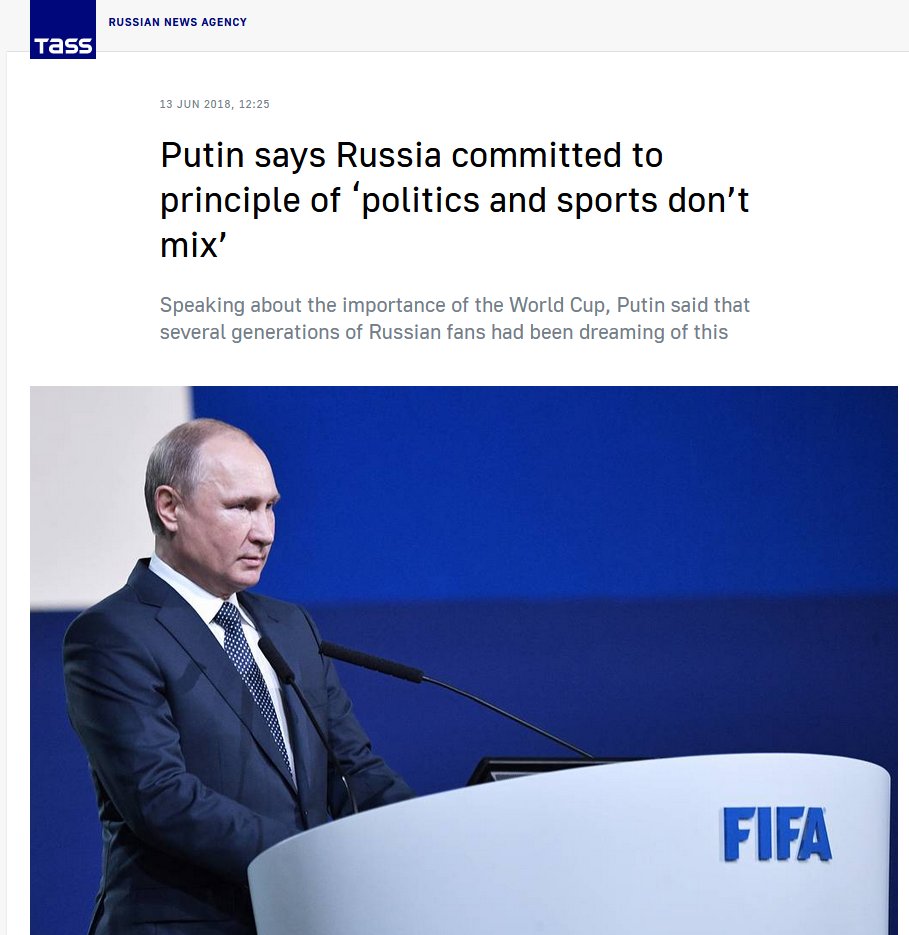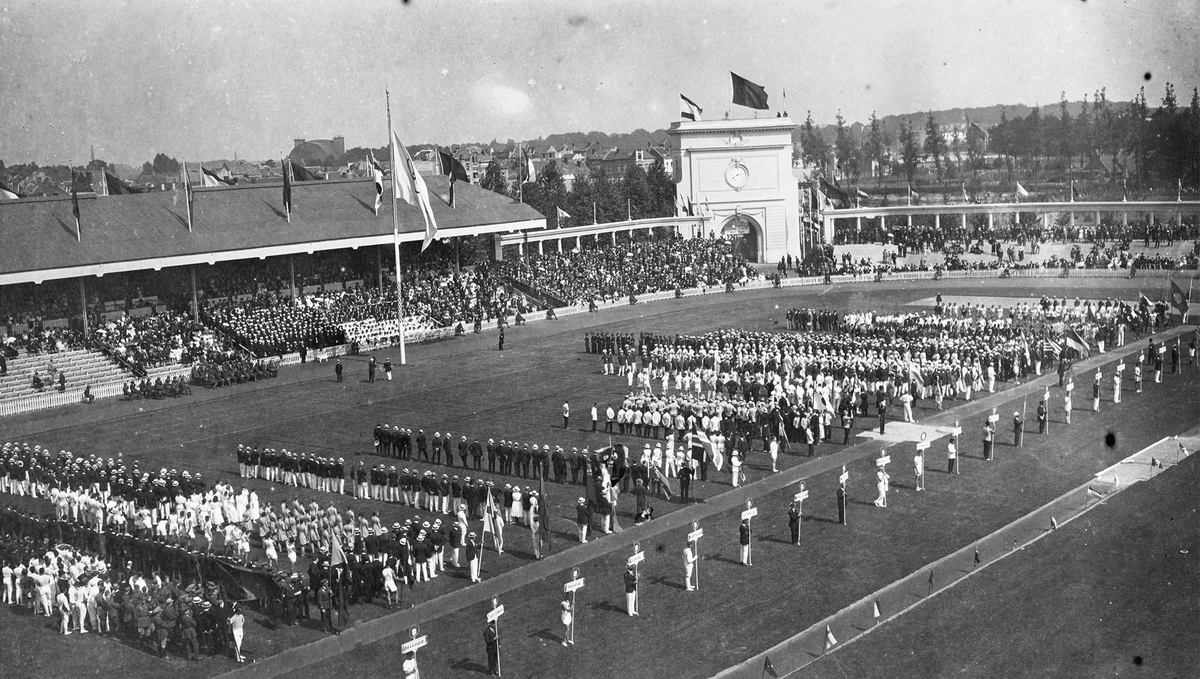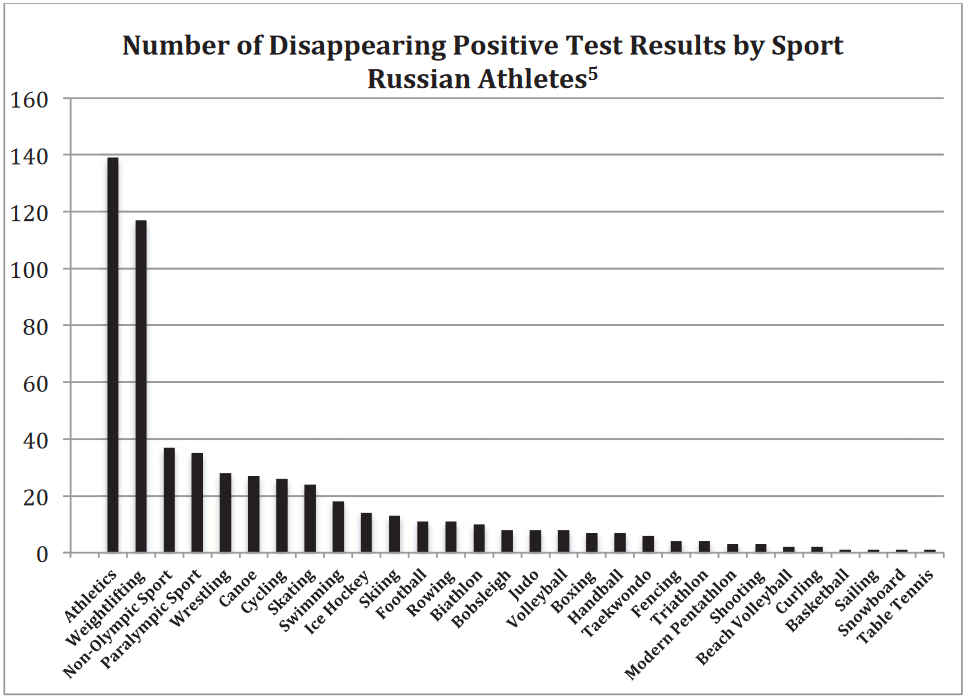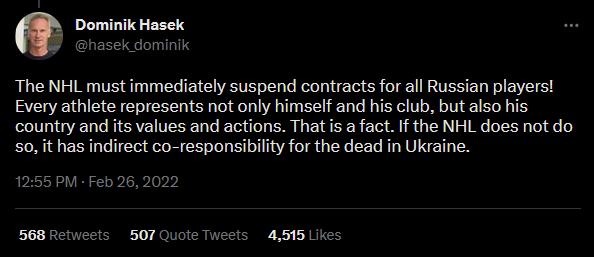In today's #vatnik soup I'll be talking about sport and politics. With the upcoming 2024 Olympic Games in Paris, there's been a lot of debate on whether Russia and Belarus should be able to compete or not. In this soup I'll explain why they - in my opinion - shouldn't.
1/17
1/17

Putin himself has said already back in 2018 that "Russia's committed to principle of ‘politics and sports don’t mix’". Of course we all know that in case of Russia this statement is bullshit, as sports has been used as a propaganda tool since forever.
2/17

2/17


Banning of countries from Olympics is not a new thing, and it - in addition to boycotts - has been applied on many occasions throughout the 21st century. For example, 1920 Games in Antwerp banned Austria, Bulgaria, Türkiye, Hungary & Germany due to their involvement in WWI.
3/17
3/17

1948 London Games banned Germany and Japan due to their involvement in WW2. Between 1972-1988, South Africa was banned due to their apartheid regime. The ban on South Africa was maintained due to worldwide pressure.
4/17
4/17

And then we have Russia, a country that had many of its athletes banned from participating in 2016 Olympics in Rio due to their state-sponsored doping program. For this reason, Russian athletes also couldn't compete under their own name and flag in 2018 PyeongChang ...
5/17
5/17

...Olympics, 2020 Tokyo Olympics or in 2022 Beijing Olympics.
A 2015 report by WADA described widespread doping cover-ups with the inclusion of FSB, Russia's Federal Security Service. In Nov, 2015, Russia was banned from world track and field events and suspended RUSADA.
6/17
A 2015 report by WADA described widespread doping cover-ups with the inclusion of FSB, Russia's Federal Security Service. In Nov, 2015, Russia was banned from world track and field events and suspended RUSADA.
6/17

Two former directors of RUSADA, Vyacheslav Sinev and Nikita Kamaev, died under suspicious circumstances, as is tradition in Russia. Kamaev had recently approached a British newspaper, planning to publish a book on systematic doping in Russia since 1987.
7/17
7/17

Grigory Rodchenkov, who WADA described as the person who's "the heart of Russian doping", fled to the US and shared his story with filmmaker Bryan Fogel who then made the award-winning documentary, Icarus, on the subject.
8/17
8/17

WADA report by Richard McLaren in 2016 showed that Russia's state-run doping program ran on wide range of sports from weightlifting to snowboarding. The report concluded that at it had detected 643 positive samples, but this number is generally considered "only a minimum".
9/17
9/17

Russia was thus banned until the end of 2022 from participating as a country, but individuals could still join competitions as independent athletes. But even these bans haven't stopped Putin doing politics through sports.
10/17
10/17

In May, 2022, after Russian 15-year old figure skater Kamila Valieva won team gold medal in Beijing 2022, Putin held a press conference where she awarded Valieva with an "Order of Friendship" medal and sang her a song.
11/17
11/17

Valieva had previously tested positive for banned substance, trimetazidine, and her gold medal was still pending due to investigations. RUSADA cleared her in Jan, 2023.
Russians have been, and are still competing internationally in various sports.
12/17
Russians have been, and are still competing internationally in various sports.
12/17

For example, the Austrian company Red Bull GmbH sponsors "alternative" athletes. While some of them have toned down their social media activity, many of them are still actively taking part in competitions and promotions around the world.
13/17

13/17


National Hockey League (NHL) still allows Russian individuals play as usual. Of these, Washington Capitals superstar Alexander Ovechkin has supported Putin on several occasions. Most of them have not commented on the war and visit their homes in Russia occasionally.
14/17


14/17



Sports is, and always has been a political tool in Russia. Big sports events are a way to divert people's attention from political scandals, corruption and poverty to "Russian achievements". State workers are often forced to participate these events.
15/17

15/17


Organizing sports events is also a neat way to funnel money to Putin's friends - Out of the total budget of 50 billion USD, the Rotenbergs, Gennady Timchenko and Vladimir Yakunin were awarded at least 15 billion USD in Sochi contracts.
sochi.fbk.info/en/
16/17
sochi.fbk.info/en/
16/17

Russia's sports culture is very similar to their political system: riddled with corruption and cheating.
As the legendary Czech goalkeeper Dominik Hasek put it: "Every athlete represents not only himself and his club, but also his country and its values and actions".
17/17
As the legendary Czech goalkeeper Dominik Hasek put it: "Every athlete represents not only himself and his club, but also his country and its values and actions".
17/17

Support my work (and get some AI art!): buymeacoffee.com/PKallioniemi
Past soups: vatniksoup.com
Related soups:
Gennady Timchenko:
Rotenbergs:
Past soups: vatniksoup.com
Related soups:
Gennady Timchenko:
https://twitter.com/P_Kallioniemi/status/1593495543535337481
Rotenbergs:
https://twitter.com/P_Kallioniemi/status/1604455540209471489
• • •
Missing some Tweet in this thread? You can try to
force a refresh

































